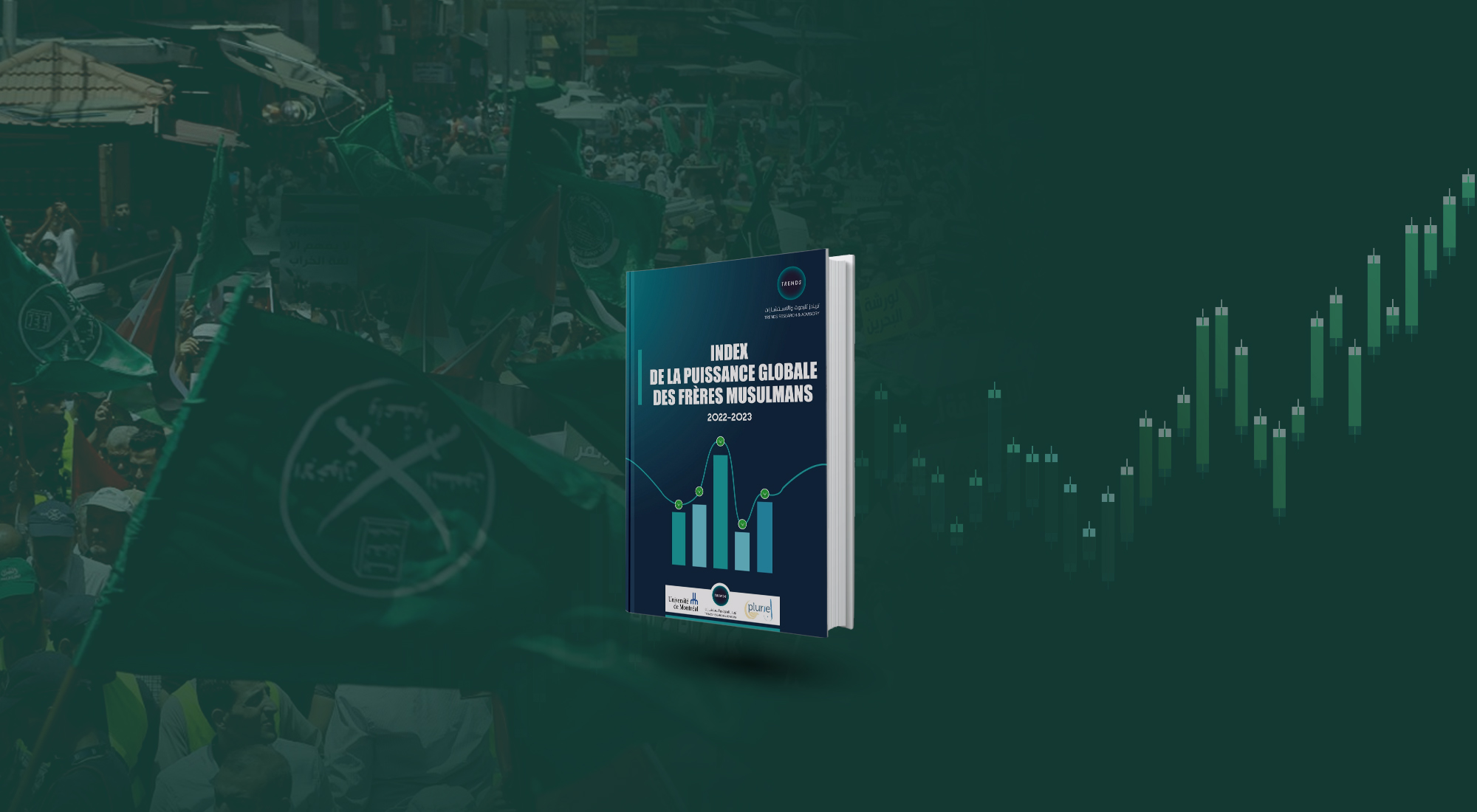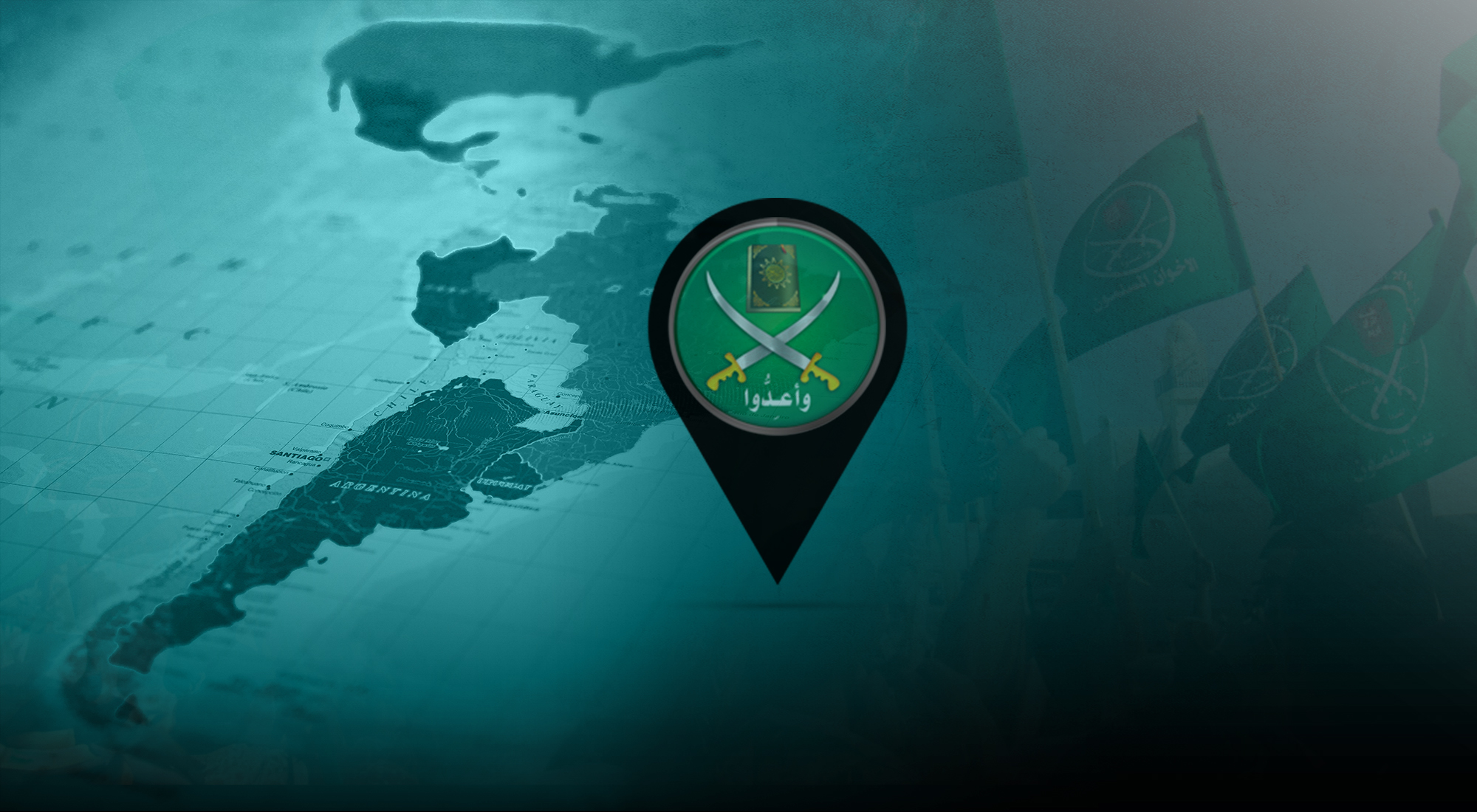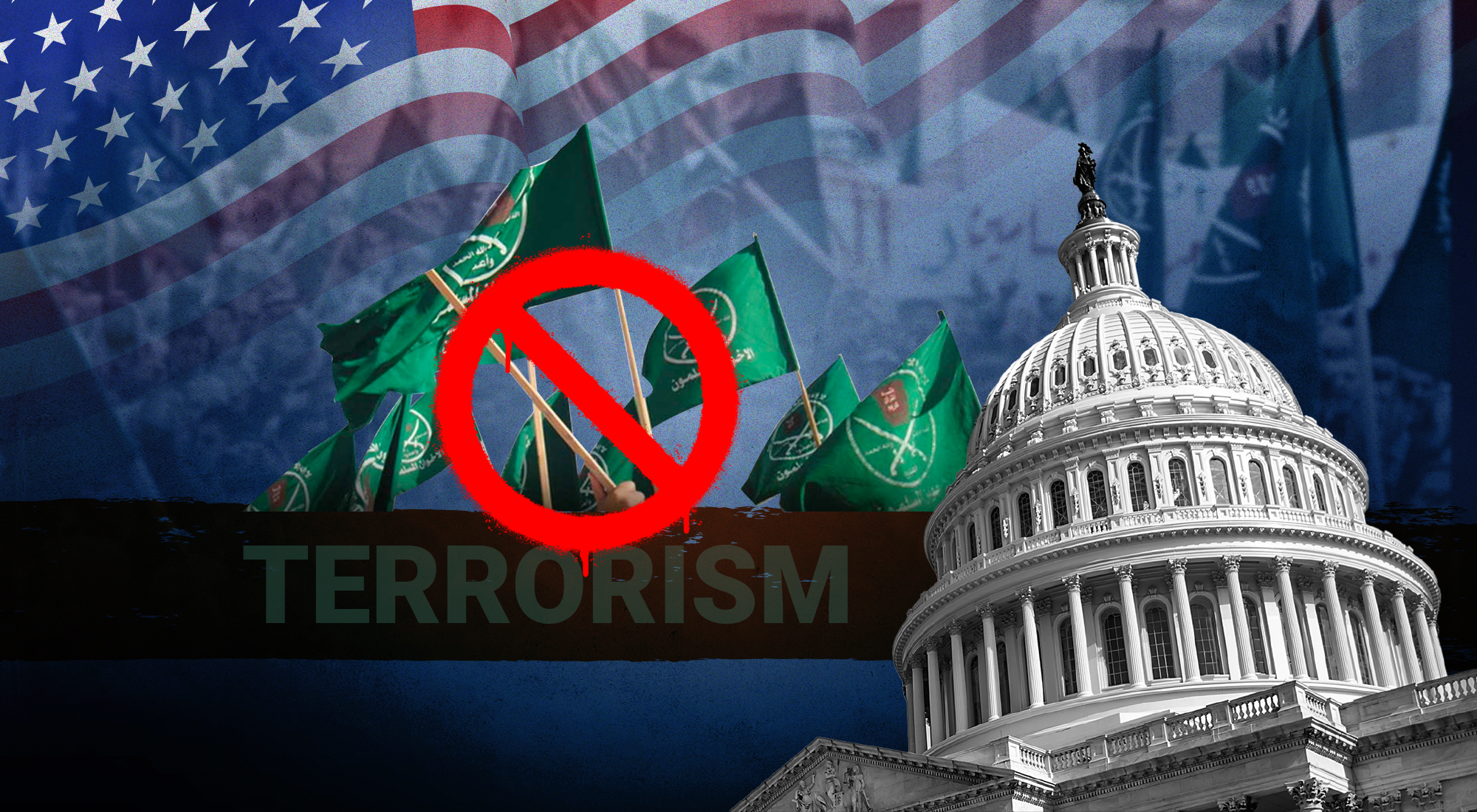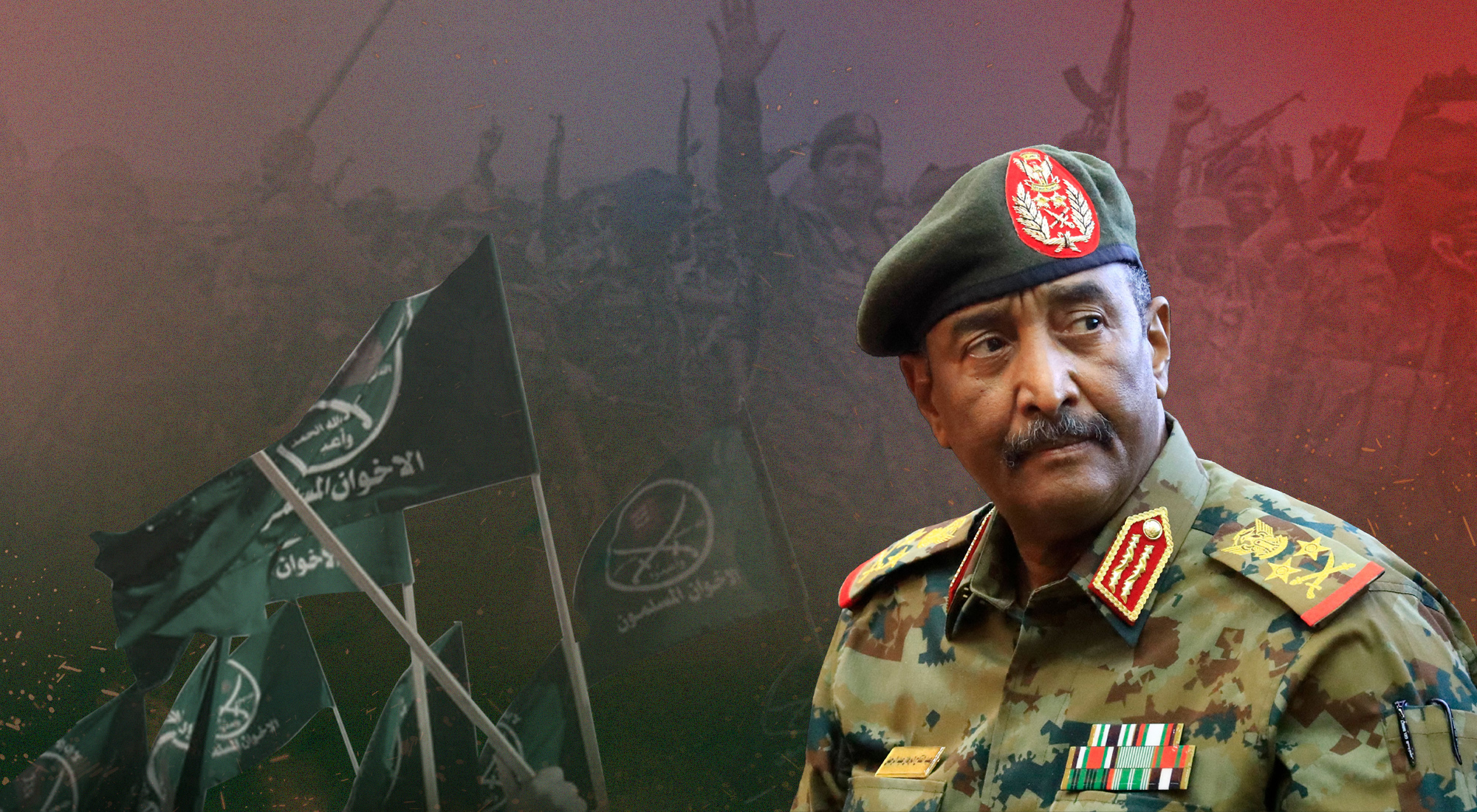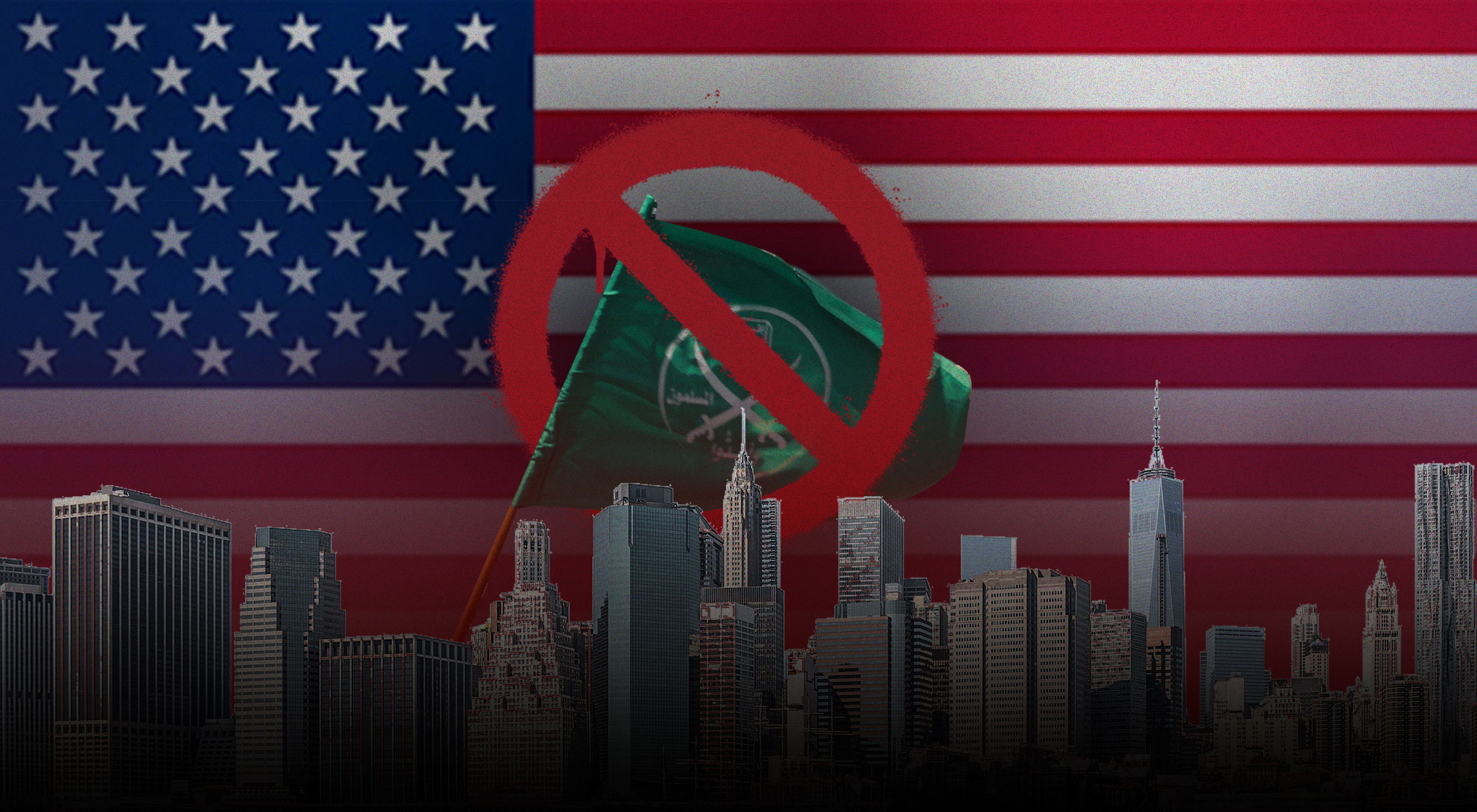TRENDS Research and Advisory released an index measuring the influence of the Muslim Brotherhood (MB) on the sidelines of the Center’s participation in the Paris Book Fair on 15 April 2024.[1]
This short study aims to highlight the significance of this indicator, the most important methodological and epistemological principles on which it is based, and the most significant findings that follow.
The indicator shows that to track current and future changes in the MB’s international influence, policymakers rely on many qualitative studies currently available. Nevertheless, the problem with these studies is that they do not meet the requirements, given their nature, which involves presenting crucial information using as much text and pages as possible. Moreover, these studies adopt different approaches, theories, and disciplines of knowledge, resulting in a delayed MB-related policy response. Quantitative studies are almost absent and are extremely important in understanding the phenomena associated with the Brotherhood’s Islamism.
Hence, the importance of the indicator can be summarized as follows:
- This is the first and only index of its kind in the world that measures, by scientific methods, quantitative and qualitative, the influence of the Muslim Brotherhood at the international level.
- It meets the growing need to obtain early and clear signals about the current and future developments of the extent of the Muslim Brotherhood’s influence at the global level in a way that leads to an appropriate policy response to the group at the policy level.
- It provides honest and objective answers about the group’s ability to reach its goals and foresee its future.
Methodological and epistemological foundations
Therefore, the main goal of the Muslim Brotherhood’s International Power Index (MBIPI) is to offer credible and objective answers about the MB’s capacity to achieve its objectives, impose its will, and project its future. In addition to all the above, the importance of MBIPI lies in its uniqueness, being the first and only index of its kind in the world.
This study is divided into an introduction, seven chapters and a conclusion to accomplish these goals and provide a theoretical understanding of MBIPI that can be applied on the ground. In the Introduction, we address objectives, importance, and the outline of the main elements of the study. Chapter 1 covers the definitions and analysis of the key terms used in MBIPI, followed by the methodology, mechanism, and method of measurement, and finally the research limitations. In Chapter 2, we present an overview of the findings of MBIPI regarding the influence of MB’s “International Organization”. Chapter 3 is devoted to analyzing MBIPI’s findings on MB’s political and security power. Chapter 4 offers an analysis of the MBIPI conclusions regarding the MB’s economic power. The MBIPI’s results on the MB’s media power are discussed in Chapter 5, while Chapter 6 provides an overview of the MBIPI’s results regarding the MB’s societal power.
The last chapter, Chapter 7, offers a geographical analysis of the power indicators to assess the degree of strength or weakness of the MB based on the set of indicators and geographical regions chosen. We conclude by summarizing and analyzing the overall findings of MBIPI and exploring their significance for understanding the Muslim Brotherhood’s overall influence in 2022.
The following table summarizes the main elements from which MBIPI is derived, especially regarding the definition of the index, the mechanism of calculation and measurement, the targeted level of detail, the periodicity of measurement, and the source of data used to measure MB power at the international level.
Table 1. Summary of MBIPI main components
| Index | Muslim Brotherhood’s International Power Index (MBIPI) |
| Definition | To set up specific, measurable, and scientific indicators for the strengths or weaknesses of the Muslim Brotherhood internationally to determine the group’s regional and international status. These indicators include political, economic, media, societal, and organizational aspects. |
| Calculation mechanism and measurement of the targeted level of details |
|
| Occurrence | To issue an annual report presenting the status of the MB according to these scientific indicators. |
| Source of data | Monitoring sub-indicators and selected countries within the geographical regions. |
The 2021 Muslim Brotherhood’s International Power Index (MBIPI), experimental and foundation version, clearly indicates how the MB suffered major setbacks, leading to a loss of popular support and influence in Arab societies. This significantly affected the MB’s global power index, sinking to 64% compared to its highest level during the Arab Spring. However, the MB remains Strong, but on the lower end of this tier, which ranges from 61% to 80%. Therefore, the MB is closer to being Moderately Strong than Very Strong.
So, what happened between January and December 2023?
The most important results for 2022-2023
The Muslim Brotherhood continues to suffer severe blows that significantly weaken its power, namely:
- The influence of MB’s media machine and its power of mobilization have become weaker due to a lack of professionalism and credibility and a tendency toward exaggeration. This is exacerbated by failed comeback attempts in the media scene through new satellite channels, such as “Al-Shoub” [The Peoples].
- Internal disputes and divisions persist (splits in Ennahda),[2] as well as increased conflicts between the London and Istanbul fronts and the Kamalist wing,[3] especially after the death of Ibrahim Mounir[4] in November 2022 and the fight over the position of Acting Supreme Guide.
- The declared rapprochement between the Arab Quartet countries,[5] and Qatar and Turkey. This rapprochement has so far been at the expense of MB’s interests.
- Increased blockades and restrictive actions have weakened the MB at the international level, including the decision on 18 September 2022 by the Central Council of Muslims in Germany (ZMD) to expel all MB representatives. This ban encompasses the Islamic Center in Munich and the MB-affiliated Student Union. ZMD also stripped renowned global MB figure Ibrahim El-Zayat, known as the MB finance minister, of his position within the Council. In the same year, Austria invested more in countering and deconstructing the narrative of political Islam through its Documentation Centre Political Islam (DPI).
- More MB members undergoing security-based prosecutions. For example, in mid-January 2022, the Egyptian authorities arrested Hossam Menoufy, a prominent leader and founder of Hasm, MB’s armed wing. The Egyptian Official Gazette also published on 16 October 2022, the decision of the Cairo Criminal Court, Circuit 31 South, regarding terrorist entities, branding the MB as a terrorist organization and banning them for five years from the date of issuance of the decision.
- Several TV shows were broadcast in Ramadan 2022, revealing many unknown aspects to the public. These TV productions also helped decimate any remaining sympathy for the MB. At the forefront of these shows is The Choice [Al-Ikhtiyâr] series, which documented in audio and video how the MB resorted to violence and terrorism and how, in that context, its members opted for escalation. The series has also emphasized the fact that the MB’s loyalty was never to Egypt. In this sense, it chronicles how the MB never sought to improve the situation in Egypt but rather to enable its cadres to control key positions within the Egyptian state and impose its ideology on society to perpetuate its rule.
- Divisions and fragmentations have affected major MB organizations worldwide. For instance, the Algerian Muslim Scholars Association announced that it would freeze its activities related to the International Union of Muslim Scholars (IUMS), following the statement in August 2022 of Ahmed Raissouni, head of the Moroccan Movement of Unity and Reform, against Algeria, in which he declared that “Moroccans, and scholars and preachers in Morocco are ready for jihad, with money and lives […] and to crawl in millions towards the Algerian city of Tindouf”. This statement ultimately led to Raissouni’s resignation from his position later in August 2022.
- Large segments of Arab and Muslim populations have become convinced, more than ever, of the MB’s deceitful narrative and its selective manipulation of regional issues, especially after the full normalization of relations between Turkey and Israel in August 2022.
- These setbacks culminated in solid indicators confirming that the MB is now, to a large extent, out of international equations. It no longer exerts the same influence on the street and is not being seen anymore as a useful geostrategic tool in interstate conflicts. U.S. President Joe Biden and Nancy Pelosi’s visit to Egypt and their meeting with President Abdel Fattah El-Sisi and Turkish President Recep Tayyip Erdogan in November 2022 are a few examples.
- Undoubtedly, the deaths of Al-Qaradawi[6] and Mounir late in 2022 further weakened the MB and its remaining influence, especially given the absence of adequate replacements in the short and medium term under the ongoing circumstances.
- The MB’s recurring failures in mobilizing and fomenting unrest in Arab countries, an example of which is Egypt on 11 November 2022.
All the above-mentioned factors have led to a subsequent decrease in the overall power of the Muslim Brotherhood from 64% (Strong), in 2021 to 49.3% (Medium), in 2022 to 48% (Medium), as shown in the following figure:
Figure 1. MB’s overall power in 2021, 2022 and 2023

The following two tables provide additional information about the results of MB’s overall power in 2021 and 2022. The main indicators of the MB’s power are compared in the first table (see Table 2), and the MB’s power by region is compared in the second (see Table 3).
Table 2. MB power’s main indicators in 2021 and 2022
| MB Overall Power | International Organization Power | Political & Security Power | Economic Power | Media Power | Societal Power | |
| 2021 | 64% | 15% | 77.5% | 89.2% | 70.3% | 67.7% |
| 2022 | 49.3% | 30% | 47.5% | 60.4% | 46.6% | 61.8% |
Table 3. MB’s power by region in 2021 and 2022
| Arab World | Asia | Europe | Americas | Africa | |
| 2021 | 77.5% | 68.7% | 82.7% | 86.5% | 60,4% |
| 2022 | 34.7% | 83.2% | 53.5% | 64.1% | 65,8% |
On the other hand, some indicators suggest that the MB and its allies are trying to prevent their collapse, as shown by the decline of the MB’s power from 64% (Strong) to 49.3% (Medium). These indicators include:
- The attempt to temporarily transform the MB into a movement and to merge Islamist parties, e.g., the merger of the Zamzam Party with the Islamic Centre Party in Jordan.
- The MB’s continued use of consensus issues, such as Islamophobia, as a Trojan horse to ensure the survival of its ideology, especially given the confusion in the West between Islam and Islamism.
- The U.S. withdrawal from Afghanistan and the return of the Taliban to power offer a glimmer of hope for the MB to adopt the Taliban model to access power. The Russia-Ukraine war can also provide Islamists with a favorable environment where their military skills can be enhanced and where their ideas can cross-fertilize with other non-religious extremist tendencies. The Russia-Ukraine war can, from this perspective, contribute to producing its version of “hybrid jihad”.
- The emerging alliance between Islamism (both Sunni and Shiite) and neo-Eurasianism[7] provides Islamism with something akin to a kiss of life. This alliance manifests through the increasing rapprochement (economic, military, and geostrategic) between Putin’s Russia and Erdogan’s Turkey since 2016, as well as between Putin’s Russia and the mullahs of Iran (e.g., the role of Iran’s suicide drones in the Russia-Ukraine war illustrates this alliance).
- The waning intellectual fight against the MB, especially among the Arab Quartet.
After peaking during the so-called Arab Spring and remaining Strong until 2021 before turning Average in 2022, will the downward trend in the Muslim Brotherhood’s power continue in 2024? This is what the MBIPI 2024 edition will try to answer.
[1] Wael Saleh, Patrice Brodeur and Hamad Al Hosani, THE MUSLIM BROTHERHOOD’S INTERNATIONAL POWER INDEX – MBIPI, 2022-2023, TRENDS RESEARCH & ADVISORY, 2024.
[2] Ennahda is a self-defined Islamic democratic political party in Tunisia. It was founded in 1981. Its co-founder, Rached Ghannouchi, has remained its president for 38 years. After the 2011 Tunisian revolution, Ennahda reemerged as a political party and became the largest party in parliament. However, the party faced criticism over concerns about Islamization. In 2018, Ennahda also faced accusations of forming a secret organization that infiltrated security forces and the judiciary, as well as being linked to the assassinations of progressive political leaders.
[3] “Kamalist” refers to Mohammad Kamal, who was a senior MB leader. Before he was killed in 2016, he was responsible for the MB’s armed wing. Kamal was one of the most prominent MB leaders and had been a member of the Guidance Bureau and had been in charge of the Supreme Administrative Committee, known as the youth committee, until May, when he resigned over differences with other MB leaders.
[4] Ibrahim Mounir was the London-based former acting Supreme Guide of the Muslim Brotherhood. He was granted political asylum by the British government in the 1990s. Mounir was dismissed from his role as acting Supreme Guide in November 2021 and died in November 2022 in London.
[5] In alphabetical order: Bahrain, Egypt, Saudi Arabia, and the United Arab Emirates.
[6] Yusuf al-Qaradawi was an Egyptian Islamic scholar and the former chairman of the International Union of Muslim Scholars (IUMS). He was considered to be one of the most influential contemporary Islamic scholars. Al-Qaradawi had a prominent role within the intellectual leadership of the Muslim Brotherhood. He was known for his program Sharia and Life, which was broadcast on Al Jazeera channel and had an estimated audience of 40-60 million worldwide. Al-Qaradawi authored more than 120 books and issued controversial fatwas [religious edicts] that have been considered extreme and violent.
[7] Eurasianism is a political movement in Russia that emerged in the early 20th century. It argues that Russia does not belong to either Europe or Asia but instead to the geopolitical concept of “Eurasia”, governed by the “Russian world”. Putin’s latest foreign policy concept, approved in 2023, defines Russia as a “Eurasian and Euro-Pacific” civilizational state closely aligned with China, the Islamic World, and the rest of the Global South, seeking to replace Western hegemony with a “Greater Eurasian Partnership”.



